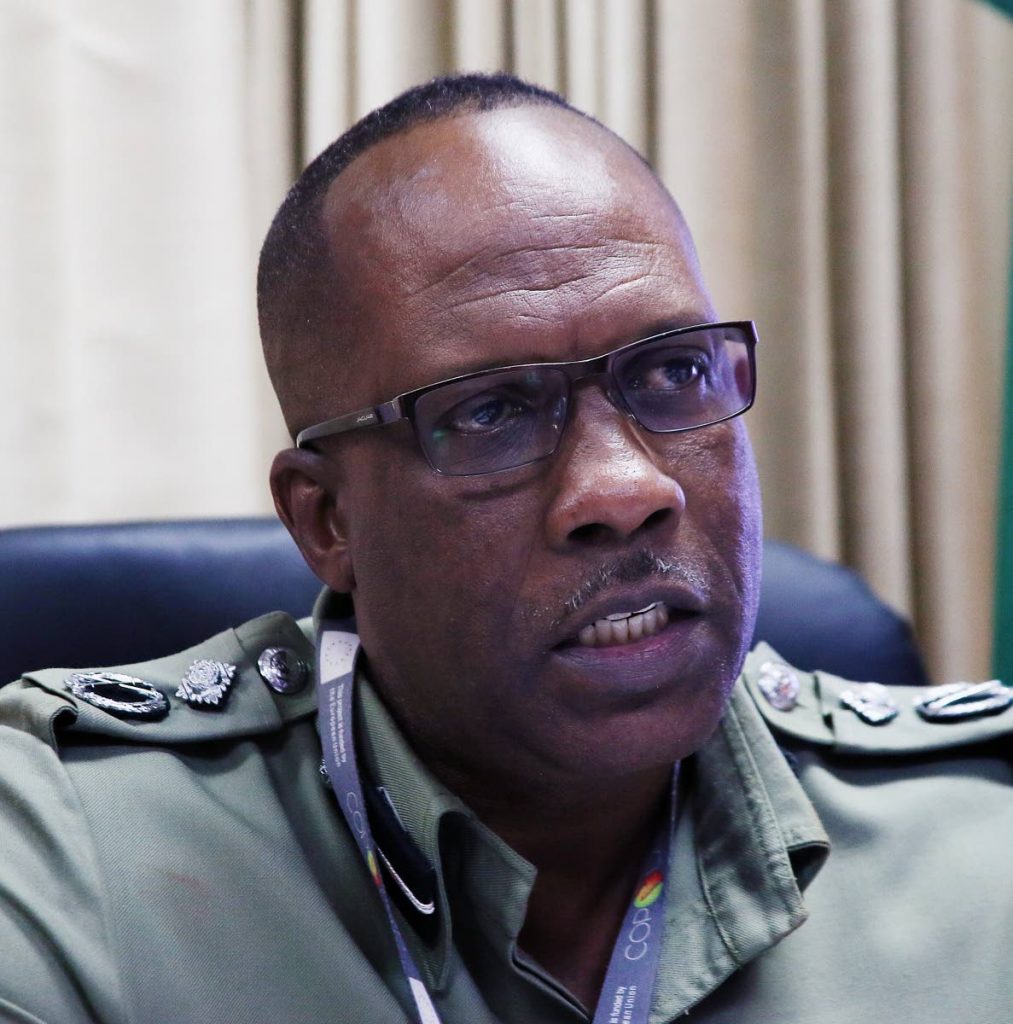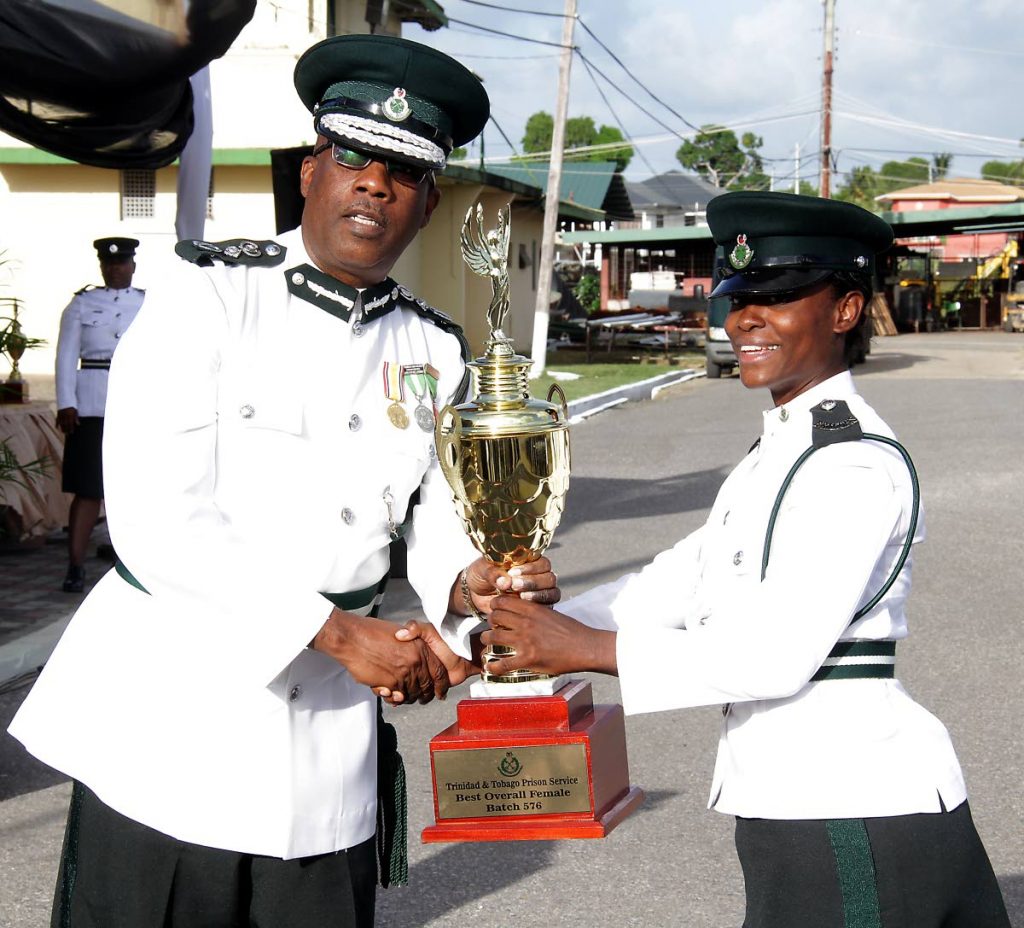‘I believe in second chances’

DEBBIE JACOB
WHEN the phone rings at 1 am, acting Commissioner of Prisons Gerard Wilson wonders what crisis is next. The call might request permission to take a sick inmate to hospital. It might report a fight or there could be news of an officer being attacked, injured or shot.
“You can never tell what will happen or when,” he says.
There are endless challenges to face in TT’s prisons where remanded inmates, who make up 60 per cent of the prison population, wait years for their trials. Wilson says his strategy is to be proactive.
In February 2018, he formed a High Risk Management Unit with five officers under the Asst Commissioner of Offender Management. These officers met with inmates and documented information in preparation for the anti-gang legislation. “…so we will know exactly where we will be placing inmates,” he says.

He has ordered the re-evaluation of inmates deemed high-risk.
“Some might have been high-risk seven years ago when they came into the prison, but now the threat has dissipated, so we can put them back into the general population.”
He is particularly interested in what happens in the remand prison.
“I worked there for ten years and bonded with those inmates. I want to change that area because that is where we have most of our issues.”
A master’s degree in human resource management makes Wilson, who once taught criminal justice at COSTAATT, sensitive to inmates’ and officers’ issues.
“We have overcrowding and poor conditions. In Golden Grove and Port of Spain there are no toilets in the cells. If we want to rehabilitate inmates, we need to have an environment that is as humane as possible.”
One of his biggest challenges is to get officers to support restorative justice.
“About 40 per cent of officers currently buy in. I have implemented a strategic plan to improve this, taking a bottom-up rather than a top-down approach with officers and focus groups in different stations.
“The question is how do you move officers from the retributive state of mind to being a more accommodating officer?
Wilson wants more programmes in prisons: anger management, financial management and a drug rehab programme – “not a sensitising drug programme. We’ve had enough of those. We need treatment programmes in a therapeutic way,” he says.
He also believes the parole system must be examined.
“We have people whose sentences were commuted to life. If you rehabilitate people and they reach a pinnacle, they will decline if they don’t have positive outlets which allow them to contribute to society. They need to feel there is hope –like a pardon.
“Success at a certain level should be rewarded with another chance in society. I believe in second chances. All of us some period in time have had a second chance.”

The requirements for being a prison officer should also be examined.
“Are three passes enough? There is a feeling we’re not getting the cream of the crop out there.”
But there’s much, he says, the public doesn’t know.
“Officers don’t just lock inmates in cells. We have very educated, qualified officers who teach.”
Among his favourite success stories are the artists from Carrera; the prison band, which gets engagements all over the country; and the Futsal (football) programme under former Strike Squad captain Clayton Morris.
“Clayton coaches inmates to be officials and coaches so when they leave prison, they can contribute to their communities.”
Wilson is aware of the negative public perception of prison officers: “That we beat inmates, but only when we have to defend ourselves.
“We do have officers who overstep boundaries. There’s a disciplinary office, and we investigate those cases. We decide who is culpable and the chips fall where they may.
“We cannot get the public to change its opinion about us unless we change inside. We have to curb the trafficking too.”
Wilson says prison officers’ behaviour is typical.
“The work ethic is not what it used to be anywhere,” he says, “but I expect officers to be more sensitive and committed to inmates. When you sign up for this job you sign up to transform lives. If you don’t, you fail at your duties. We’re here to see about humans. Officers must understand that.”
Then there’s the issue of terrorism. The US Embassy runs programmes to prepare TT’s prisons for terrorism.
“There’s some anxiety over Isis, but we don’t have any evidence of ISIS-related activity at this time,” says Wilson. “We feel inmates that call themselves ISIS probably want to belong or want to instil fear. For us, it is more than a follow-fashion than a reality.”
For Wilson, the list of challenges and issues grows by the day. “Nothing shocks me any more,” he says. “After a while you become numb.”
Sidebar
Restorative Justice
Much lip service is paid to the concept of “restorative justice,” a concept that Commissioner Gerard Wilson says is often misunderstood.
“Here is how it works,” says Wilson. “A painter steals a computer from a school that needs painting.
“Instead of sending the painter to prison, the magistrate could send him for rehabilitation and have him paint the school. The school would save the cost for painting and use that money to buy computers.
“Restorative justice starts from sentencing and takes into consideration what sentence makes sense for the victim. The emphasis is on service, anger management, and rehabilitation. Restorative justice means that everyone gets a sense of justice out of the sentencing. Society benefits.
“In prison, our role in restorative justice is important. Not everyone is going to walk away from court. Some will go to prison, where we have to work on meaningful rehabilitation. There are officers who feel if I give an inmate a soft drink or a TV to watch, that is restorative justice.
“It’s not. That’s just being kind.
“If we don’t do our work with restorative justice in prison; if we don’t do our introspection, we will send people back outside to do worse. Without understanding that, we all pay the price outside.
“The role we play in prison is serious and we need to get serious.”


Comments
"‘I believe in second chances’"